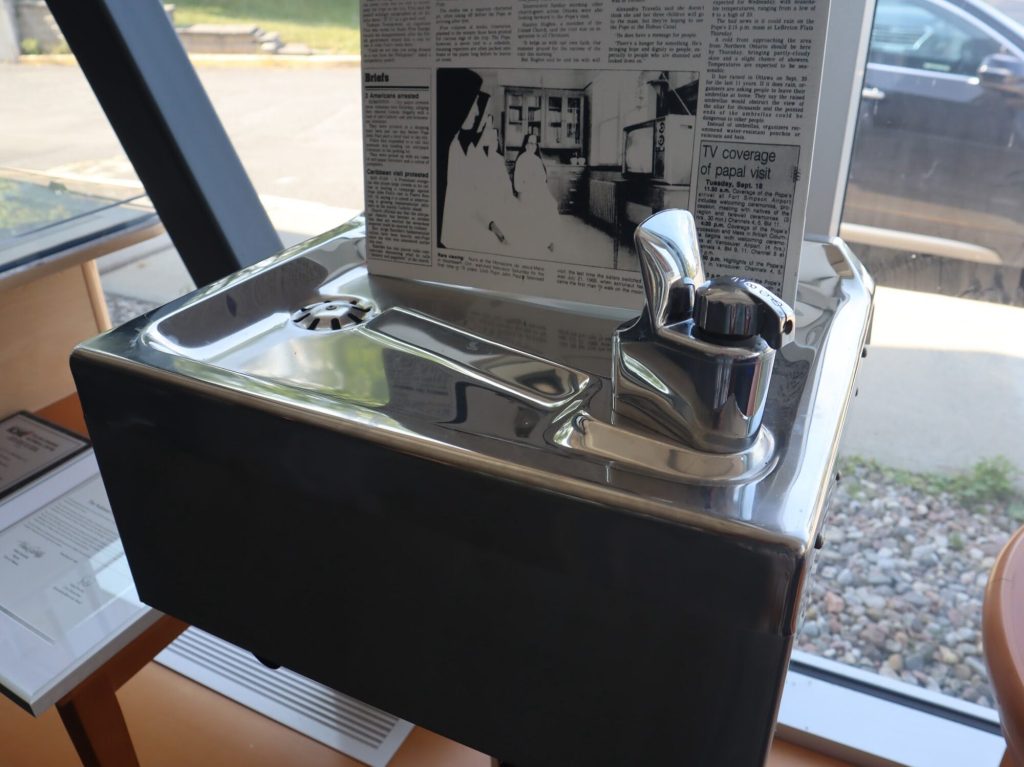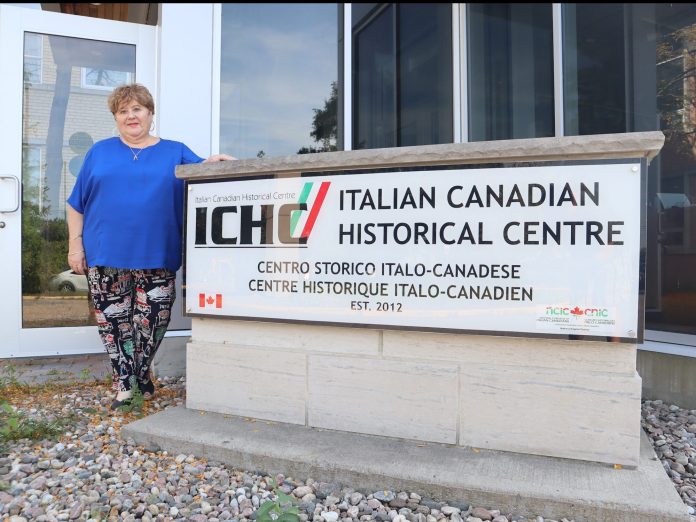When Italian immigrants first settled in Ottawa, it wasn’t actually on Preston Street.
Some of the earliest Italian history in the city comes from the ByWard Market neighbourhood, where newcomers lived next door to many Jewish, Irish and French families. They attended church at a small chapel on Murray Street, and moved to Rochesterville when St. Anthony’s Church opened there in 1913.
Since then Preston Street — also known as Little Italy — has been a hub for Italians. The area was founded as and remains the traffic canal of the first western suburban settlements of the 1895 amalgamated City of Ottawa.
Much of its early memories are preserved in the Italian Canadian Historical Centre which is connected to Villa Marconi on Baseline Rd. The facility was created in 2013 after the Canadian government apologized for the internment of Italians during the Second World War. About $16 million was offered to make changes to the curriculum and preserve the community’s heritage.
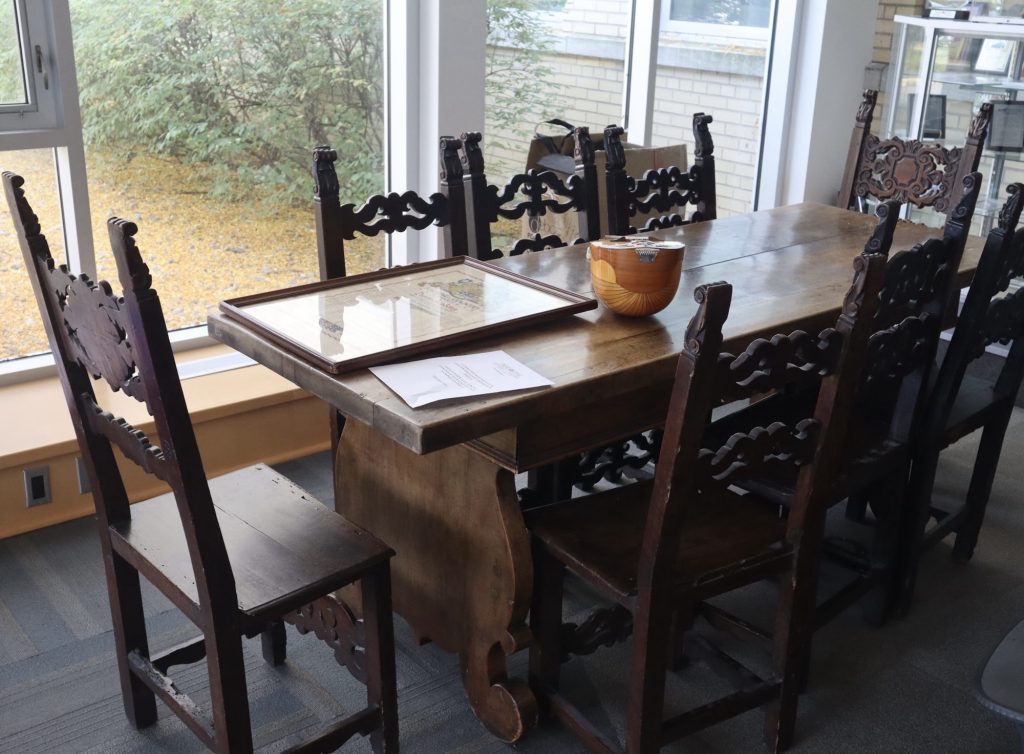
“Someone created a statue, one wrote a book. What the Ottawa chapter did at that time was apply for funding from the federal government to build a historical centre to record the history of how the Italian community in Ottawa was affected and to merge that with the history of the community,” said Italian Congress of Ottawa president Trina Costantini-Powell. “They received $250,000 from the federal government. [Former Ottawa-West Nepean MPP] Bob Chiarelli lobbied the provincial government and they matched it through the Trillium Foundation and the city kicked in money for development costs. The community raised some money too.”
For the first few years, the centre mostly remained closed to the public other than for a few events which would use the space. There were ambitions of one day turning it into an educational facility where students could do research after school, but that never got off the ground.
In addition to being an events and information space, the historical centre also houses pieces from Preston Street’s past. One of the most notable items is a cash register from 1912.
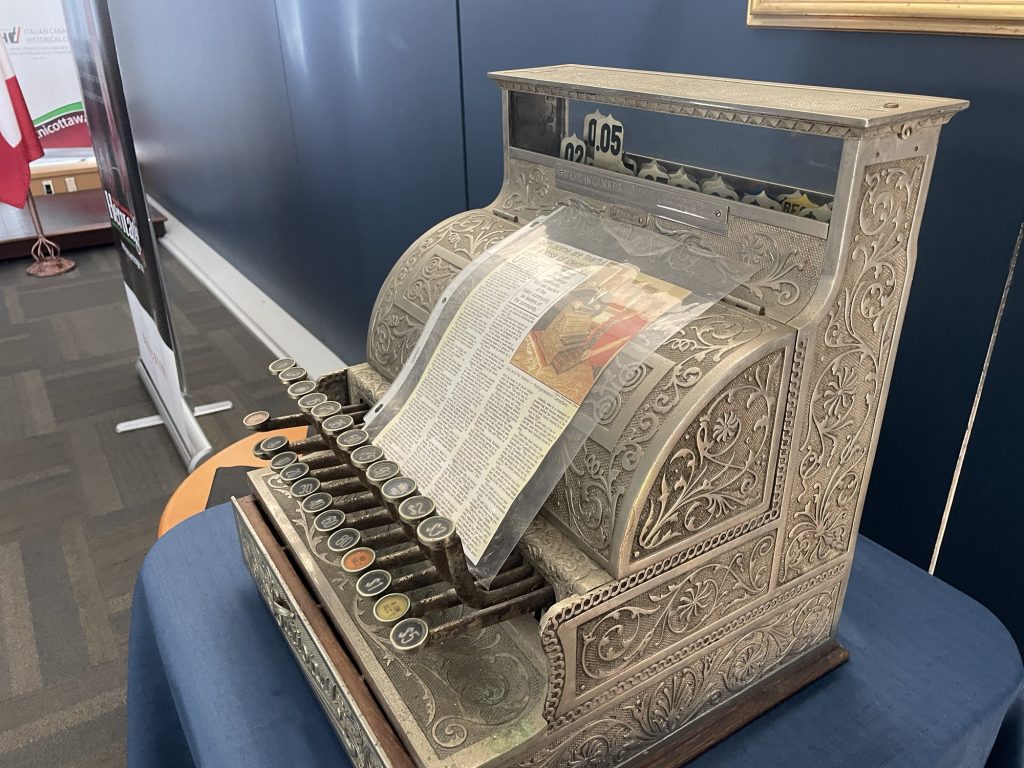
“It was the cash register from the Guzzo and Adam’s grocery store on the corner of Preston and Aberdeen where Giovanni’s Restaurant is now. This grocery store was the first on Preston, and it was there from 1912 until 1977,” said Costantini-Powell. “It was run by a mother and father, and then their two children helped run it even though they had day jobs.”
On display next to it is a harp that belonged to the Rocco Graziadei Trio, three musically inclined brothers from Lowertown.
“He had a business where people could go and get a ticket if they were taking a ship back to the old country. If they were needing official documents, the business did that as well,” said Costantini-Powell. “When there were social functions being held on Parliament Hill, Rideau Hall, or anywhere in the community, they would play beautiful music.”
The harp dates back to the mid-1880s and was made in Paris, France. Rocco Antonio Graziadei died in 1935 after a long illness. He passed away at his home on St. Andrew Street. His family kept the instrument in their possession until his grandson’s wife donated it to the centre.
In the back of the building is a mandolin, an instrument that was regularly played in older Italian movies. It belonged to Tullio Locatelli who was a shoemaker on Preston. He eventually obtained a contract with National Defence and maintained the boots of soldiers during the Second World War.
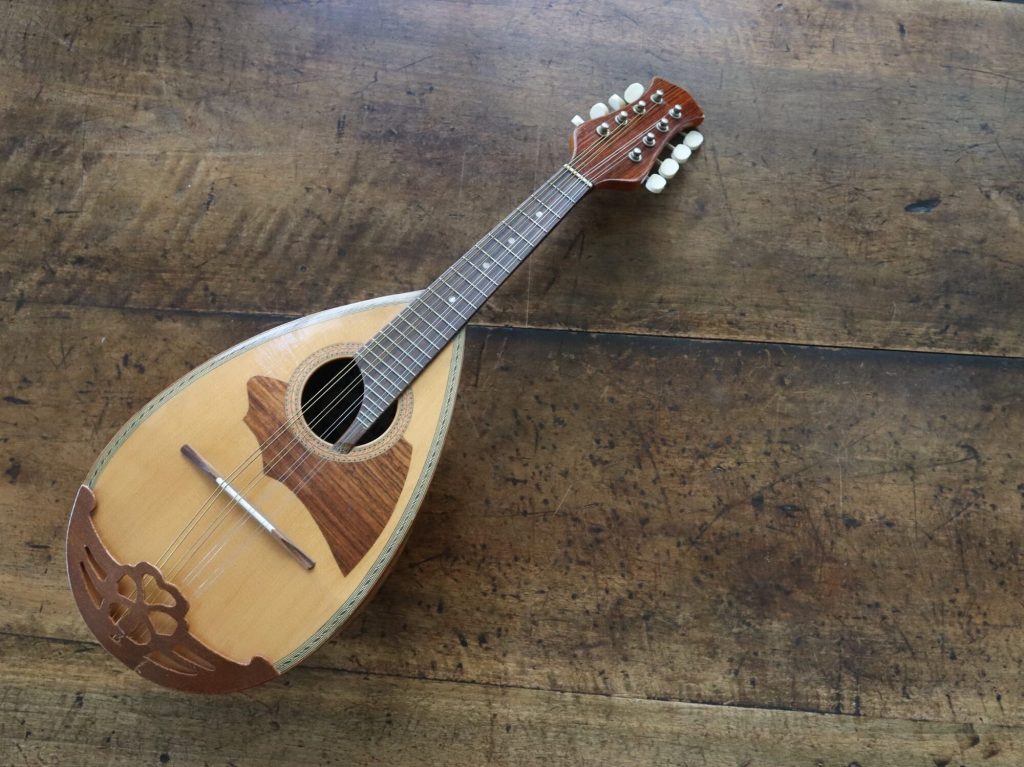
Perhaps one of the more peculiar artifacts on display is a water fountain that sat at LeBreton Flats on the day Pope John Paul ll came to town. He arrived mid-afternoon at Uplands Airport on Sept. 19, 1984, and was then whisked away by special limousine to Dow’s Lake where he took a boat down the Rideau Canal. Over 200,000 lined the route to catch a glimpse of the Bishop of Rome.
After a jam-packed schedule, the pope was brought to LeBreton Flats where he performed an open-air mass. There were over 250,000 people in the fields, some who camped out the night before. Costantini-Powell was one of them and recalls it being a hot day. The water fountain was donated by a man whose plumbing company was contracted to set up the event.
